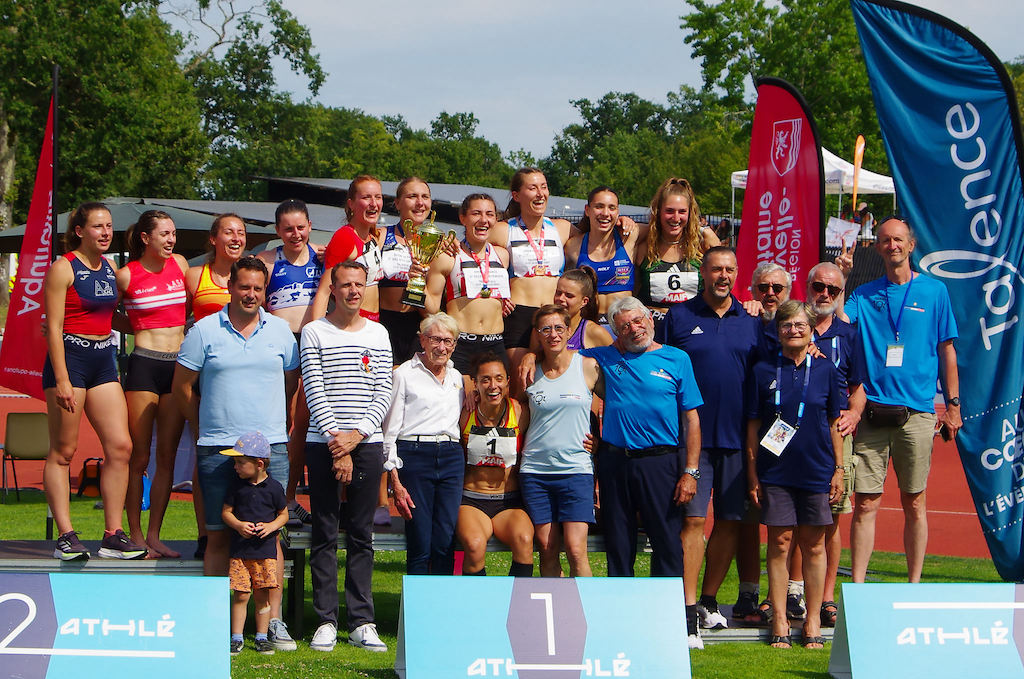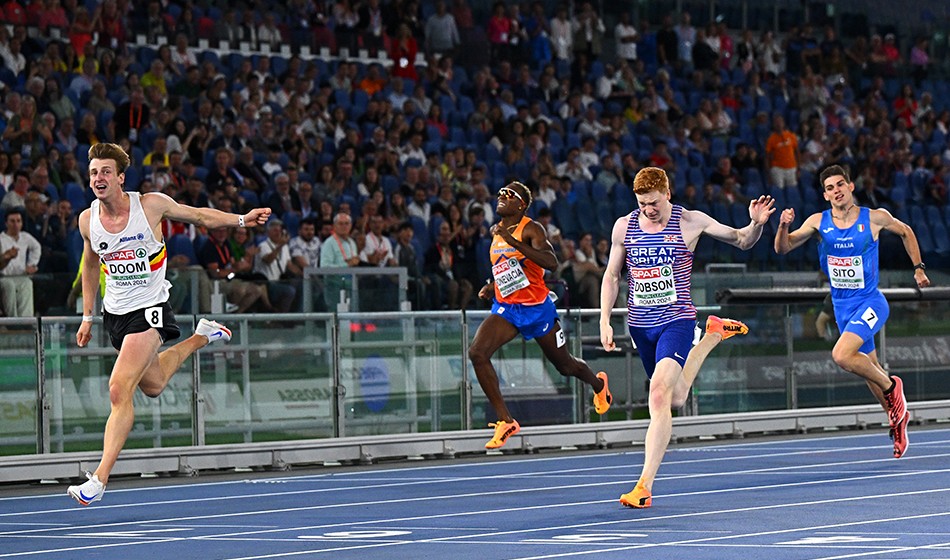GianMarco, "Gimbo", Tamberi is not only a great athlete, coming back from an awful injury to become the best high-jumper in the world, but also an accomplished showman. And in Rome he gave an exhibition of both his talents. He missed a jump at 2.26 m and two at 2.29 m. But then he succeeded on his third attempt and went on to pass 2.31 on his first. At that point, only one jumper was still in contention, who missed once at 2.31, moved to 2.33 m, missed twice and was out. Tamberi, jumping after him, had won at that point and, for his third attempt, had the bar raised at 2.34, which he passed. Then we were granted a short interlude with Gimbo feinting injury and, after this, exhibiting a jumping shoe full of springs. But the event was not over yet. He placed the bar at 2.37 m and passed on the first try for a championship record and world-leading performance.
The women's event was less eventful. The qualifiers saw the elimination of Valortigara and Levchenko and, in the final, the medals were decided at 1.95 m, M. Demireva just missing out on 4th place for her come-back at a high-level competition. I. Herascchenko won, at long last, a medal in a major (outdoors) championship. A. Topic pursues her steady progress, finishing second with 1.97 m while Mahuchikh won with 2.01 m.
"Manolo" Karalis added a silver European to his bronze world medal, passing 5.87 m on his first attempt. (He went on to improve the greek national record with 5.92 m a few days later). Mondo Duplantis was, as (almost) always, untouchable. He won the competition with 6.10 m, (with just 5 successful jumps) and a new championships record. The women's event was a pleasant surprise for the greek fans. K. Stefanidi passed 4.73 m on her first try and took control of the event, indoor world champion M. Caudery having an off day (but succeeding at 4.73 on her second attempt). The situation was soon reversed though as A. Moser, who had an unsuccessful first attempt at 4.73 continued at 4.78 m and passed on her first attempt. Still, Stefanidi took away silver, just as she had done two years ago in Münich. The surprise of the event was the below-par performance of reigning European champion W. Murto, who finished 8th with 4.44 m despite having jumped 4.81 m earlier in the season.
M. Mihambo won easily the women's long jump (see this post for the men's event) with two 7+ jumps, her best being 7.22 m. L. Iapichino added an outdoors silver to last year's indoor bronze, with 6.94. A. Peleteiro won the triple jump with 14.85 m while T. Danismaz confirmed her 2023 world indoor title, winning European silver. G. Petrova on her come-back at international level after several years of absence, scrapped into the final, beating the 13th placed athlete on count-back, and went on to finish 6th. The men's event was, well, eventful. Already the previous day, at the mess hall, Pichardo and Diaz almost came to blows. A. Copello (he is from Santiago de Cuba, just like Pichardo, while Díaz comes from La Habana) had to intervene for the spirits to calm down.
In the competition, Pichardo took control with 18.04 m (his second-best performance after his 18.08 m from 2015) but Díaz responded first with 17.96 m and then with a humongous 18.18 m, the third performance of all time. But the matter did not finish there. Pichardo casted doubt (with a publication in social media) on Díaz's performance because the electronic board next to the pit ceased to function during Diaz' jump. (Díaz responded implying that Pichardo is a crybaby). Make sure not to miss their duel in the Olympics.
I can't say that I enjoyed particularly the throws. L. Fabbri won easily the men's shot put with 22.45 m, more than a metre beyond the silver medalist. J. Schilder won the women's event with a so-so throw of 18.77 m, mere centimetres ahead of the two other medalists. F. Roos would have won silver had she made in the final the same 18.70 m throw as in the qualifiers. Men's discus saw the defeat of the world record holder. M. Alekna could not throw more than 67.48 m, and so he was beaten by K. Ceh (68.08 m) and L. Weisshaidinger (67.70 m). The other favourite, D. Stahl, was just outside the medals with 66.84 m. S. Perkovic has taken her husband's surname and competes now as Elkasevic. And, with 67.04 m, she obtained her 7th European victory in an uninterrupted series since 2010. J. Vadlejch managed to snatch gold at his last attempt with an 88.65 m throw in the men's javelin. Of the three athletes I am following in the women's javelin throw only Vilagos managed to reach the podium with a personal best of 64.42 m (losing gold to V. Hudson for 20 cm). E. Tzengko was a disappointing 6th and M. Andrejczyk 10th. W. Nowicki won the men's hammer throw with a 6th attempt 80.95 m throw. The women's event saw the victory of S. Fantini with 74.18 m, while A. Wlodarczyk grabbed silver for her come-back to high-level competition. All in all, apart from Fabbri, the men discus throwers and Elkasevic I am not particulary optimistic about the chances of the European throwers at the Olympics.


















